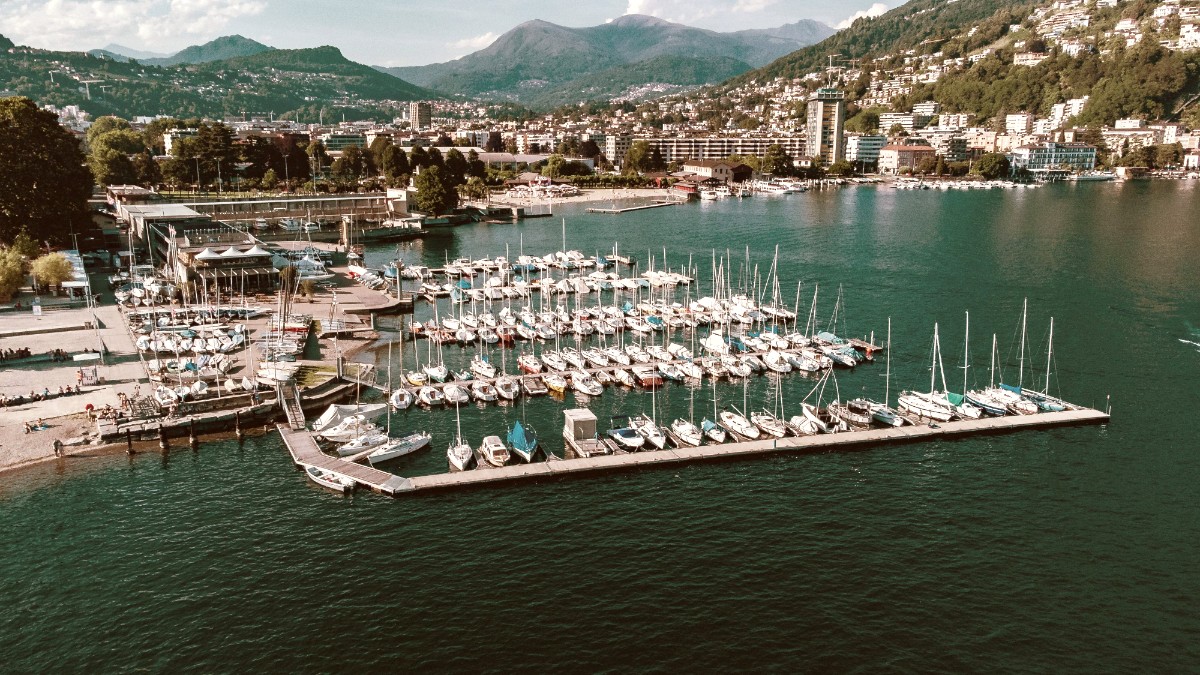
Ticino, Switzerland
Warmest weather for swimming and lake activities. All attractions, restaurants, and services operate at full capacity. The Locarno Film Festival takes place in August, filling the city with energy.
The city experiences crowds, leading to higher prices for accommodation and flights. Temperatures can be very hot and humid, especially in August. Popular spots become busy.
Temperatures are pleasant and comfortable for exploration. Crowds are smaller than in high season, resulting in lower prices for lodging and flights. Spring showcases blooming flowers, and autumn offers colorful foliage. This period is suitable for hiking and enjoying outdoor pursuits without intense heat.
Some lake services or mountain lifts may have reduced operating hours or close early/late in the season. The possibility of rain showers exists.
The fewest crowds, making for a quiet visit. Prices are at their lowest, except around Christmas. The mild winter climate presents an unique charm compared to central Switzerland, with festive markets in December.
Many outdoor attractions and some restaurants close for the season. Daylight hours are shorter. Some areas might feel less lively.
Summer thunderstorms are common, often appearing in the afternoons. While Locarno's winters are mild, periods of fog or temperature inversions can occur. Always check the local forecast (e.g., MeteoSwiss) for accurate daily weather information.
Switzerland is a member of the Schengen Area, influencing entry procedures for various nationalities.
Citizens from non-EU/EFTA countries without a visa-free travel agreement with the Schengen Area require this visa. It permits stays of up to 90 days within any 180-day period across the Schengen zone. Apply through the Swiss embassy or consulate in your country of residence. Start this process well in advance, as it takes time.
Citizens of the EU/EFTA, USA, Canada, Australia, New Zealand, and the UK, among many others, can enter Switzerland without a visa for tourism purposes. This visa-free entry allows stays of up to 90 days within a 180-day period. From mid-2025, non-EU/EFTA visa-exempt travelers will require an ETIAS (European Travel Information and Authorization System) authorization. ETIAS is not a visa but a travel authorization similar to the U.S. ESTA. Apply for ETIAS online before your trip.
Switzerland has a high cost of living, and Locarno is no exception. Careful budgeting supports expense management.
Approx. CHF 80-150 per day
Accommodation: CHF 30-60 (hostel/guesthouse)
Meals: CHF 20-40 (supermarket/pizzeria)
Approx. CHF 150-300 per day
Accommodation: CHF 80-150 (mid-range hotel/apartment)
Meals: CHF 50-80 (casual restaurants)
Approx. CHF 300+ per day
Accommodation: CHF 150-500+ (4-5 star hotel)
Meals: CHF 100-200+ (fine dining)
| Item | Budget Traveler | Mid-Range Traveler |
|---|---|---|
| Hostel dorm bed | 30-60 CHF | N/A |
| Mid-range hotel | N/A | 120-250 CHF |
| Pizza/simple lunch | 15-25 CHF | N/A |
| Mid-range dinner | N/A | 30-60 CHF |
| Local bus/train ticket | 3-6 CHF | 3-6 CHF |
| Funicular Cardada/Cimetta | 28 CHF | 28 CHF |
Locarno is a very safe destination, but understanding health and safety aspects supports a problem-free trip.
Measles, mumps, rubella (MMR), diphtheria, tetanus, pertussis (DTaP), and polio.
For personalized recommendations based on health history and travel plans.
Sunburn/Heatstroke
The sun can be intense, especially in summer and when reflected off the lake. Use high SPF sunscreen, wear hats and sunglasses, seek shade during peak sun hours (10:00-16:00), and stay hydrated by drinking plenty of water.
Tick-borne diseases (TBE, Lyme disease) pose a concern if hiking in rural or forested areas, specifically in spring and summer. Wear long sleeves and pants when hiking. Use insect repellent containing DEET or picaridin. Check your body carefully for ticks after outdoor activities and remove them promptly.
Altitude sickness is not an issue in Locarno itself, but possible on trips to very high Alpine regions.
Switzerland has a very low crime rate. Locarno is generally very safe for residents and visitors.
Locarno has some natural disaster risks, especially related to its geography.
Lake Maggiore can experience high water levels during heavy rainfall. Significant flooding in the city center is rare due to protective measures.
More common in mountainous areas, especially after heavy rain or snowmelt. Stay on marked trails and heed local warnings.
A concern only if you venture into high alpine terrain in winter, far from Locarno and its immediate surroundings.